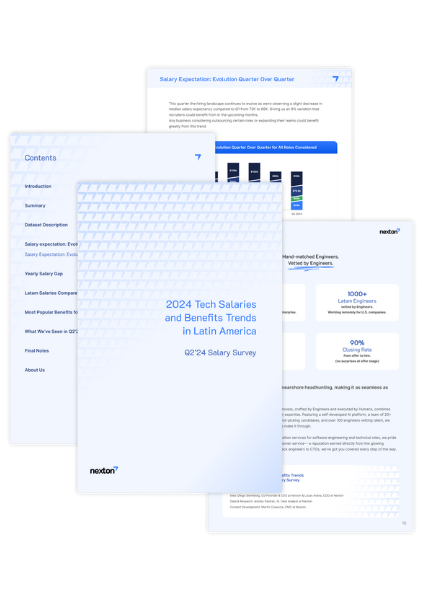At Nexton we believe that quality beats quantity any day. That's the reason we implemented a 4-day week.
Our people work smarter, not harder —building goals, prioritizing, and reducing meeting time. This means a shift away from focusing on time to focusing on output. We don’t want our team to sit in front of the screen 40 hours a week, we want them to contribute to our purpose. In the end, that's what really matters.
With a 4-day workweek, we have more energy and become more productive. Spending good time with family and friends, connecting with our passions, and finding new hobbies, helps free our minds and come back refreshed.

How do we do this?
We give our team Fridays off. For those areas that provide support and service to our customers, we implement a rotation system so that we can ensure coverage for the whole week. In this way, Account Management and Customer Operations teams alternate Mondays, Wednesdays, and Fridays off. That way, all of our teams get to enjoy a shorter work week without sacrificing the service we provide.
The payment stays the same as well as the quality of our work. We’re about the 100-80-100 model: 100% of the pay, 80% of the time, in return for delivering 100% productivity.
How are we measuring results?
We will measure our team's performance, the impact it had on their lives, and the impact it had on our clients.
- Feedback Surveys to better understand how the 4-day workweek impacted our team.
- Conversations with clients to understand the impact our 4-day workweek had on them.
- Goal setting aligned with the team’s OKRs to evaluate our performance against those objectives and key results.
What Best Practices do we apply and recommend to our Team and other companies implementing it?
We’ve got a series of best practices to make the most of their shorter week.
- Learn to say no: Identify meetings in which your presence is not necessary or valuable and communicate ahead that you would skip it so you could focus on your weekly goals.
- Set meetings only when necessary: Our time is valuable and learning to make conscious use of it will be the greatest challenge of the 4-day week trial.
Sometimes, we tend to schedule a meeting without asking ourselves if it’s really necessary and they turn out to be time-consuming. Before scheduling a meeting ask yourself: What is the goal? Does this conversation need to happen in real-time?
- Audit your calendar: Identify meetings that could be shortened or eliminated. The fewer meetings you have, the better
- Optimize meeting time: We are all making a great effort to optimize our work time and meet our weekly goals in 4 days instead of 5. When leading a meeting, prepare a clear agenda and share it with the participants in advance. If you expect the participants to be up-to-date with the topic you will go through during the meeting, make sure to share all the material in advance.
We know it has a great impact on our team's quality of life and enables us to be more efficient and productive in the short term.
The results of our 4-day work on our Team Members Survey:
Work-Life Balance & Motivation:
The positive impact is evident: 85% of the team feels great about the work-life balance and feel their motivation and performance have increased since they started working four days a week.
New Team Members:
When it comes to new team members 87,5% indicated that the 4-day workweek influenced the decision of joining the company.
Challenges:
The 4-day work week comes with some challenges; the biggest one mentioned, by 30% of the team, was finding the right time management. That’s why we are constantly providing internal talks about which tools are useful for personal organization in each area and also we host Nexton talks, where we all share our best practices so we enrich knowledge and sometimes take some of other team members' best practices to our daily organization.



